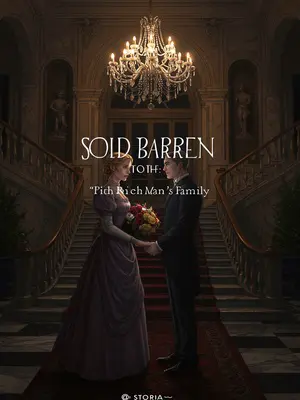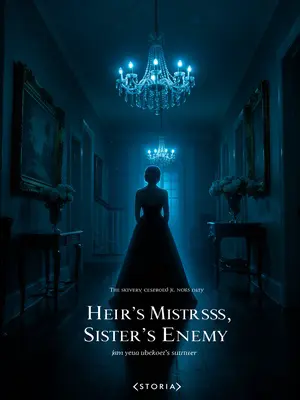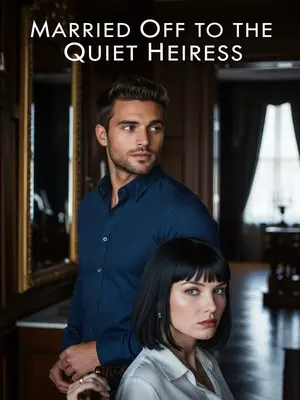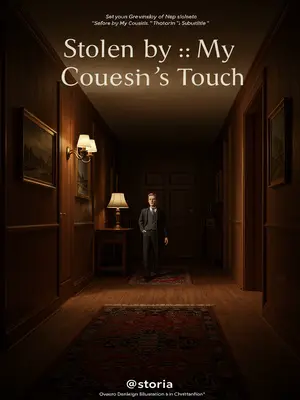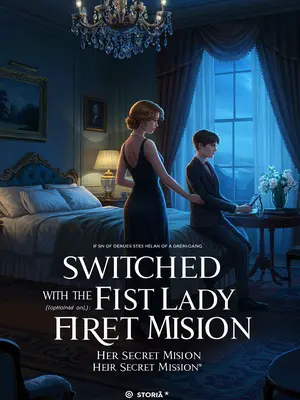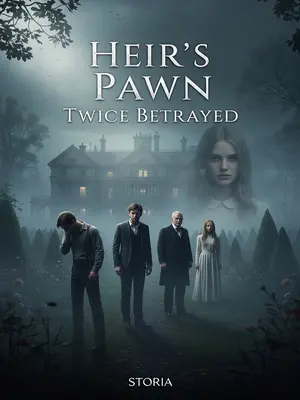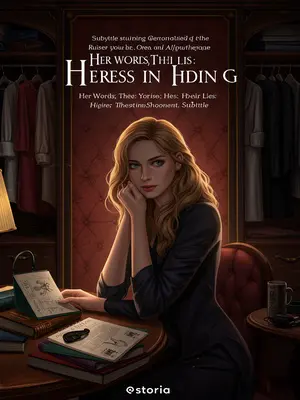Chapter 1: Exile, Pistachios, and the Sketch Hustle
I’m the only one in the so-called sorority house who’s actually seen the head of the Whitmore family. And just to be clear—this isn’t a college Greek house with Greek letters on the porch. It’s a sprawling old mansion packed with girls from good families, not a single toga party in sight.
It’s a weird claim to fame, I know. But after getting exiled to the East Wing—basically the mansion’s version of the doghouse—I started making a living by secretly selling detailed charcoal portraits and, well, semi-scandalous sketches of Harrison Whitmore, the young lord of the estate. The other girls would pay top dollar for a glimpse, even if it was just graphite and imagination. Not my proudest hustle, but hey, when life gives you lemons, you draw a six-pack on the lemon and wink at your buyer.
The first time he showed up at my door, he was all business: eyes narrowed, arms crossed, that CEO-in-training glare—like he was about to fire me from my own room. “Why’d you only give me a six-pack in your drawing? I’ve got eight.”
I tried not to laugh, but the guy was dead serious. Harrison Whitmore is a workaholic. Seriously. He runs board meetings at sunrise, and even at home, he’s always got some kind of strategy session going on. The man could probably host a quarterly earnings call in his sleep.
During the day, he’s holed up in his study, plowing through paperwork; at night, he picks a girl from the house at random, squeezing in time to do his duty to the family tree, old-school style. It’s all very old-money, but with a modern, vaguely dystopian twist.
Because of this, the girls in the house fall into two categories: those who have never seen Harrison’s face, and those who’ve only met him in pitch darkness. It’s like some kind of weird—no, legendary—blue-blooded urban myth.
I guess you could say I’m the wild card—the one who doesn’t fit, and honestly, doesn’t care to try. I’m the third kind—the outlier who showed up out of nowhere.
That night, the butler, Mr. Evans, came bustling in, beaming: “Congratulations, Miss!”
I was cracking open pistachios with my roommate, Mariah. “Huh?”
I snorted. “Won the lottery that fast?” I tossed a shell aside and groaned. “With luck like this, I should’ve bought a scratch-off.” Honestly, I’d settle for a ten-dollar win.
Mr. Evans looked confused, blinking behind his glasses. “Miss Bennett, don’t waste time! Mr. Whitmore’s busy tonight—he’s got no time for nonsense!” He sounded like he’d just stepped out of a 1950s sitcom, all exasperation and huff.
I gave him a half-hearted shrug. “Listen, Mr. Evans, you gotta get to the root of the problem. Otherwise, you’re just spinning your wheels.” I flicked another pistachio shell into the bowl, feeling like a philosopher in sweatpants.
Mr. Evans: “Uh?”
Mariah spit out a pistachio shell and shrugged. “She means, instead of wasting time with her, Harrison should go see Dr. Sun.”
I nodded. Mariah gets me. She always did—two peas in a pod, both a little too clever for our own good.
That family doctor gets paid for doing nothing—ultimate easy money. As a fellow slacker, I can’t let that stand! If you’re gonna hustle, at least hustle honestly. Sometimes I think, maybe I was born in the wrong era—should’ve been a con artist in the Roaring Twenties.
Harrison, just arriving at my door: ?
He walked in and found me chilling with a bowl of pistachios instead of scrambling to get dolled up. No makeup, no pretense, just me, my old college sweatshirt, and a bowl of pistachios. The picture of anti-glamour.
The handsome lord’s face darkened. You could almost hear the thunderclouds roll in.
So, the only girl who’d actually seen Harrison’s real face got banished to the East Wing. It’s a badge of honor, really.
Mariah cried as she packed up our stuff. She’s got a flair for the dramatic. Tears and all.
“Miss, it’s all my fault.”
“Yeah, yeah.” I asked her, “What exactly did you do wrong?”
Mariah froze. Then she started sobbing: “I’m lazy and out of shape. With all these bags of pistachios, I just can’t carry them all!”
I stretched out on the couch, hugging a chubby orange cat and basking in the sun, waving for her to check the main hall. The sunlight through the old stained glass painted us both in jewel tones. The cat purred like a tiny engine.
Mariah slouched off, but soon came running back, eyes wide with excitement.
“Miss! There’s so much good stuff!”
She grinned. “I checked—the room’s dry, airy, no cobwebs. Not at all like the rumors about the spooky, damp East Wing!” She spun around, arms full of throw pillows and a half-eaten bag of chips she’d found stashed in a drawer.
Then she paused, suddenly suspicious: “Where’d you get the cat? Is it clean? Vaccinated? Fixed? Boy or girl? How old?” She was always the practical one when it came to animals.
I raised my hand to stop her, gaze drifting past her shoulder. “Relax, Mariah. He’s got all his shots.”
A guy carrying a duffel bag vaulted over the garden wall. He raised an eyebrow at me from across the yard. He landed light, like he’d done it a hundred times before, and shot me a lopsided grin.
The cat purred in my arms, stretching like he owned the place.



